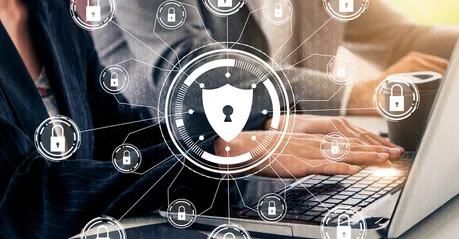
Cybersecurity is a critical aspect of our digital lives, as it involves protecting our personal information, data, and online activities from unauthorized access, theft, or damage. In an increasingly interconnected world, understanding the basics of cybersecurity is essential.
An Internet Service Provider (ISP) keeps track of every online activity, and it is possible to tamper with it. Consumers have little control against assaults at the ISP level, but cookies, which are little text files that your browser downloads and stores, may monitor the websites you visit. Additionally, browser add-ons may monitor your online behavior on many websites.
Table of Contents
Why is it important?
Cookies are used to personalize web browsing, which may also contain customized advertising. However, as seen when the distinctive identifiers added to a cookie are subsequently utilized across many services and on other marketing platforms, such tracking can go too far. These actions are frequently regarded as invasive. Phone numbers
In targeted assaults, scammers call telephone service providers pretending to be their victims using social engineering tactics. To access a target account, whether it be for banking, email, or a cryptocurrency wallet, they do this to temporarily remove a phone number from a handset. After that, they ‘own’ the number for the time it takes to collect two-factor authentication (2FA) sent to the phone number.
Content of messages and emails
Our email accounts frequently serve as a link to all of our other important accounts and serve as a record of our correspondence with friends, family, and coworkers. Hackers may attempt to get our credentials using credential stuffing, social engineering, or phishing schemes as central hubs to other online sites to hop to other services.
Why is it important? A single vulnerability might lead to the takeover of several accounts and services if an email account serves as the central hub for other services.
Here’s a beginner’s guide to help you protect your digital life:
Strong and Unique Passwords
Use strong, unique passwords for all your online accounts. Avoid using common phrases, personal information, or easily guessable patterns. Include a combination of uppercase and lowercase letters, numbers, and special characters.
Consider using a password manager to securely store and generate complex passwords.
Two-Factor Authentication (2FA)
Enable 2FA whenever possible. This adds an extra layer of security by requiring an additional verification step, such as a code sent to your mobile device, in addition to your password. It significantly reduces the risk of unauthorized access, even if your password gets compromised.
Keep Software and Devices Updated
Regularly update your operating system, web browsers, antivirus software, and other applications. Software updates often include security patches that address vulnerabilities. Enable automatic updates whenever possible to ensure you have the latest security fixes.
Be Cautious with Emails and Attachments
Exercise caution when opening email attachments, especially from unknown sources. Malicious attachments can contain malware or phishing attempts to trick you into revealing sensitive information. Be wary of suspicious emails, spelling mistakes, and urgent requests for personal information.
Secure Your Wi-Fi Network
Secure your home Wi-Fi network by using a strong, unique password and encryption. Enable WPA2 or WPA3 encryption for your Wi-Fi router to prevent unauthorized access. Avoid using public Wi-Fi networks for sensitive activities like online banking, as they may be vulnerable to eavesdropping.
Be Mindful of Phishing Attacks
Phishing is a common method used by cybercriminals to trick individuals into revealing sensitive information. Be cautious of emails, messages, or websites that request personal or financial details. Verify the authenticity of the source by contacting the organization directly through their official website or phone number.
Regularly Back Up Your Data
Regularly back up your important files and data to an external hard drive, cloud storage, or another secure location. In the event of data loss or ransomware attacks, having backups ensures you can restore your files without paying a ransom.
Use Antivirus and Security Software
Install reputable antivirus and security software on your devices. These tools help detect and remove malware, viruses, and other malicious software. Keep the software up to date to ensure it can effectively protect against the latest threats.
Practice Safe Social Media Habits
Be cautious with the information you share on social media platforms. Limit the amount of personal information you disclose publicly, as cybercriminals can exploit this information for social engineering attacks. Review your privacy settings and be mindful of what you post.
Educate Yourself
Stay informed about the latest cybersecurity threats and best practices. Keep up with news, blogs, and resources related to cybersecurity. Educate yourself on topics like social engineering, phishing, and malware, so you can recognize and respond to potential threats effectively.
By implementing these cybersecurity practices, you can significantly enhance your digital security and protect your personal information. While cybersecurity is an ongoing effort, incorporating these fundamental steps into your digital life will help safeguard your online presence and minimize the risk of falling victim to cyberattacks.

Leave a Reply